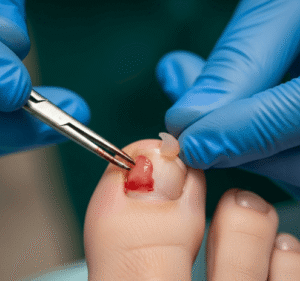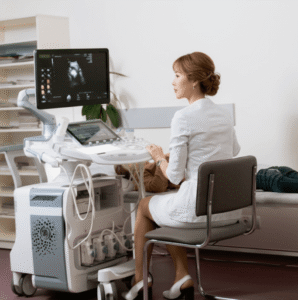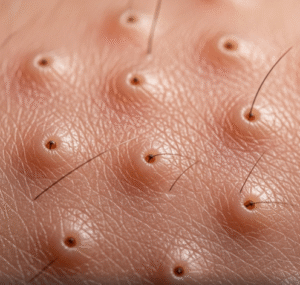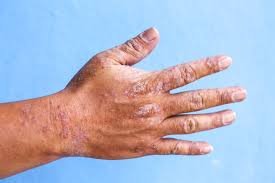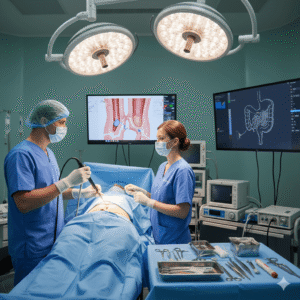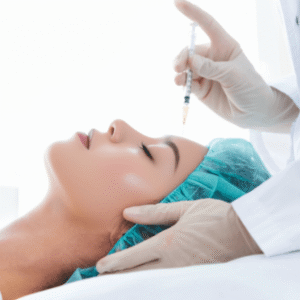Overview
Angelman Syndrome is a rare neuro-genetic disorder that primarily affects the nervous system. It is characterized by severe developmental delays, speech impairment, balance and movement issues, and a uniquely happy demeanor. This lifelong condition usually appears in infancy or early childhood and is often misdiagnosed as cerebral palsy or autism due to overlapping symptoms.
What is Angelman Syndrome?
Angelman Syndrome (AS) is a genetic disorder caused by a problem with the UBE3A gene on chromosome 15, which is typically inherited from the mother. This gene is crucial for normal brain development. In individuals with Angelman Syndrome, the maternal copy of the gene is either missing or not functioning properly, resulting in the typical symptoms of the disorder.
AS affects approximately 1 in 12,000 to 20,000 people worldwide. Despite significant challenges, individuals with AS typically have a normal life expectancy and can enjoy a good quality of life with appropriate care and therapy.
Symptoms
Symptoms of Angelman Syndrome typically become noticeable between 6 to 12 months of age and may include:
- Developmental delays (sitting, crawling, walking)
- Severe speech impairment (minimal or no spoken words)
- Frequent laughter and smiling; happy, excitable personality
- Balance and coordination problems (ataxia)
- Seizures (usually starting between 2–3 years of age)
- Sleep disturbances
- Microcephaly (small head size)
- Intellectual disability
- Hyperactivity
- Hand-flapping or jerky movements
- Fascination with water
Causes
Angelman Syndrome is most often caused by:
- Deletion of the maternal UBE3A gene (most common)
- Paternal uniparental disomy (two copies of chromosome 15 from the father)
- UBE3A gene mutation
- Imprinting defects affecting gene expression
These genetic abnormalities result in the loss of function of the maternal UBE3A gene, which is essential for normal neurological development.
Risk Factors
- Family history of Angelman Syndrome (very rare; most cases are not inherited)
- Parental chromosomal abnormalities
- Advanced parental age (possible increased risk in some cases)
Complications
- Seizures requiring long-term medication
- Feeding difficulties in infancy
- Speech impairment limiting verbal communication
- Movement and balance issues
- Behavioral challenges like hyperactivity or impulsiveness
- Scoliosis (spinal curvature)
- Sleep problems that affect both the child and caregivers
Prevention
There is currently no way to prevent Angelman Syndrome, as it is caused by spontaneous genetic changes. However:
- Genetic counseling is recommended for families with a history of AS or chromosomal abnormalities.
- Prenatal testing may be considered in certain high-risk cases.
Treatment Options in Korea
While there is no cure for Angelman Syndrome, South Korea offers a comprehensive approach to management with advanced diagnostic tools and supportive therapies to improve quality of life.
1. Diagnosis
- Genetic testing (DNA methylation analysis, UBE3A sequencing)
- EEG (to assess seizure activity)
- MRI to rule out other neurological conditions
- Top hospitals like Samsung Medical Center, Asan Medical Center, and Severance Hospital offer precise genetic diagnostics.
2. Multidisciplinary Therapy
- Speech and communication therapy (including AAC devices)
- Physical therapy to improve motor skills and balance
- Occupational therapy for fine motor skills and daily living tasks
- Behavioral therapy to manage hyperactivity and attention issues
3. Seizure Management
- Antiepileptic medications
- Regular neurological monitoring
4. Sleep Support
- Melatonin or other medications for sleep
- Behavioral sleep interventions
5. Educational and Developmental Support
- Special education programs
- Inclusive schools with individualized education plans (IEPs)
- Parental training and support groups
6. Emerging Treatments
- Research is ongoing in gene therapy and RNA-based approaches; Korea participates in international trials and studies for rare genetic disorders like AS.


